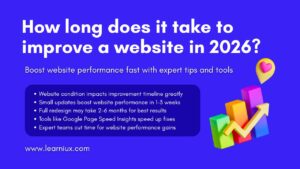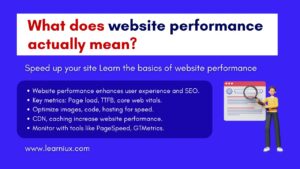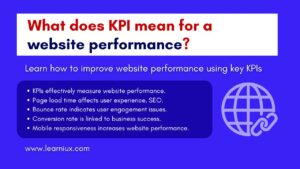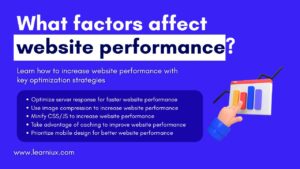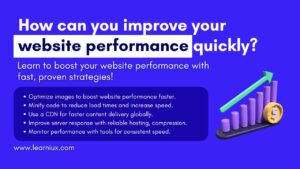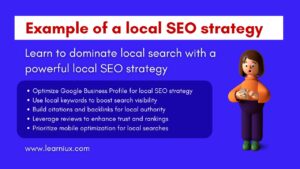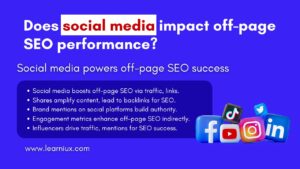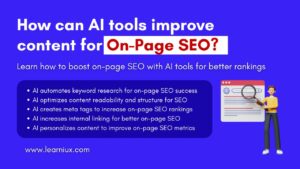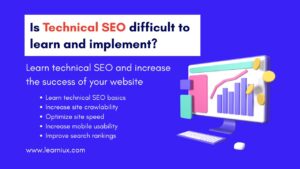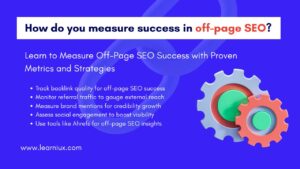Introduction
Off-page SEO encompasses all optimization efforts that occur outside of a website to improve search engine rankings. Many people associate off-page SEO with just backlinks, but this is a narrow view. In reality, off-page SEO is a multi-faceted approach that includes strategies such as social media engagement, brand monetization, influencer collaboration, and content marketing. These elements work together to increase a website’s authority, credibility, and visibility. This article debunks the misconception that off-page SEO is only about backlinks and highlights the broader strategies that contribute to its success. By understanding the full scope of off-page SEO, businesses can develop more effective strategies to grow their online presence.
The digital landscape is constantly evolving, and the techniques used in off-page SEO are also changing. Search engines like Google prioritize websites that demonstrate credibility, relevance, and user trust. Backlinks play a significant role in demonstrating these qualities, but they are not the only factor. A comprehensive off-page SEO strategy uses multiple channels to build a strong online reputation, increase organic traffic, and improve rankings. Let’s take a look at the different components of off-page SEO to see if it really is just about backlinks or if there’s more to the story.
The Role of Backlinks in Off-Page SEO
Backlinks, or inbound links, are hyperlinks from external websites that point to your site. They are an important component of off-page SEO because they act as endorsements, signaling to search engines that your content is valuable and trustworthy. When authoritative websites link to your page, it increases your site’s domain authority, which can positively impact your rankings. However, the importance of backlinks lies not only in their existence but also in their quality, relevance, and context.
In the early days of SEO, the quantity of backlinks was the primary focus. Websites could rank higher by accumulating as many links as possible, regardless of their source. However, search engines have gotten smarter. Updates like Google’s Penguin algorithm penalize manipulative link-building tactics like buying links or using low-quality directories. Today, off-page SEO focuses on acquiring high-quality backlinks from reputable, niche-related websites. For example, a backlink from a well-known industry blog carries more weight than dozens of links from unrelated or spammy sites.
Building quality backlinks requires a strategic effort. Techniques like creating shareable content, reaching out to industry publications, or collaborating with thought leaders can help secure valuable links. Additionally, tools like Ahrefs, SEMrush, or Moz can help you analyze your competitors’ backlink profiles to identify opportunities for off-page SEO. While backlinks are the cornerstone of off-page SEO, they are not the only factor in achieving success.
Social Media Engagement and Off-Page SEO
Social media platforms are powerful tools for off-page SEO, even though they don’t directly impact search engine rankings. Platforms like Instagram, LinkedIn, X, and YouTube allow businesses to interact with their audience, share content, and build communities. An active social media presence increases brand visibility, drives traffic to your website, and encourages users to share your content, which can lead to organic backlinks.
For example, a viral post on X or a well-crafted LinkedIn article can attract the attention of bloggers, journalists, or influencers who can link to your website. Social media also increases content reach, which increases the likelihood that potential linkers will find your content. Interacting with followers through comments, polls, or live sessions builds trust and loyalty, which indirectly supports off-page SEO by increasing brand reputation.
Furthermore, social media profiles often rank higher in search results for branded queries. A strong, consistent presence on the platform signals to search engines that your brand is active and trustworthy. To maximize the impact of social media on off-page SEO, businesses should focus on creating high-quality, shareable content and maintaining an active presence on relevant platforms.
Brand Mentions and Citations
Even without links, brand mentions are an important aspect of off-page SEO. When your brand is referenced on blogs, forums, review sites, or news articles, it builds credibility and authority. These unlinked mentions signal to search engines that your brand is relevant and trustworthy in your industry. For example, mentions in popular industry podcasts or reviews on trusted sites like Trustpilot contribute to your off-page SEO by strengthening your brand presence.
For local businesses, citations play a crucial role in off-page SEO. Citations are the mentions of your business name, address, and phone number (NAP) on directories like Google My Business, Yelp, or Local Listings. Consistent NAP information on these platforms helps search engines verify the legitimacy of your business, which is especially important for local SEO. Inconsistent citations, such as matching addresses or phone numbers, can confuse search engines and users and hurt your off-page SEO efforts.
Active outreach is essential to building brand mentions and citations. Submitting your business to reputable directories, responding to reviews, and participating in industry discussions can increase your brand’s visibility. These efforts complement backlinks and create a well-rounded off-page SEO strategy.
Guest Blogging and Content Marketing
Guest blogging is a popular off-page SEO tactic that combines the benefits of backlinks and brand exposure. By providing high-quality content on reputable websites in your niche, you can gain valuable backlinks while reaching a new audience. Guest blogging also positions you as an authority in your field, which increases your brand’s reputation and supports off-page SEO.
Beyond guest blogging, content marketing plays a crucial role in off-page SEO. Creating shareable content like infographics, videos, case studies, or in-depth guides naturally increases your chances of getting backlinks. For example, an infographic that simplifies complex data can be shared on industry blogs, generating backlinks, and driving traffic to your site. Similarly, a well-crafted video that resonates with your audience can go viral, leading to mentions and links from a variety of sources.
Effective content marketing for off-page SEO requires a focus on quality and relevance. Content should address your audience’s pain points, provide actionable insights, and be easy to share. Promoting your content through social media, email outreach, or influencer partnerships can further enhance its impact on off-page SEO.
Influencer Collaborations and Off-Page SEO
Influencer marketing has emerged as a powerful off-page SEO strategy. Collaborating with influencers in your niche can drive traffic, increase brand mentions, and build backlinks. Influencers often have loyal audiences who trust their recommendations, making their endorsements valuable for off-page SEO.
For example, an influencer can share a link to your product or blog post, driving traffic and signaling to search engines that your content is relevant. Even without a direct link, having an influencer mention your brand on social media or on their blog can help increase your online presence. To take advantage of influencer collaborations for off-page SEO, choose influencers whose audiences align with your target market and whose content aligns with your brand values.
Building a relationship with an influencer takes time, but the results can be significant. Through sponsored posts, product reviews, or co-created content, influencer partnerships contribute to a strong off-page SEO strategy by increasing visibility and credibility.
The Evolution of Off-Page SEO
Off-page SEO has changed significantly over the past few years. In the past, it focused heavily on link-building tactics, sometimes at the expense of quality. Today, search engines prioritize user experience, trust, and relevance. This shift has expanded the scope of off-page SEO to include factors such as brand reputation, user engagement, and content sharing.
Google’s algorithms, such as BERT and RankBrain, analyze user behavior and context to determine a website’s authority. As a result, off-page SEO now involves creating a consistent, credible brand presence across multiple channels. For example, a website with a strong social media following, positive reviews, and frequent mentions in industry publications is more likely to rank well than a website that relies solely on backlinks.
This evolution underscores the importance of a holistic off-page SEO approach. Businesses must invest in building relationships, creating valuable content, and maintaining an active online presence to stay competitive.
Balancing Backlinks with Other Off-Page SEO Tactics
While backlinks are essential, relying too heavily on them can limit your off-page SEO potential. A balanced strategy combines backlinks with other tactics to build a strong online presence. For example, a campaign that combines guest blogging, social media promotion, and influencer outreach can generate backlinks while increasing brand visibility and traffic.
To build high-quality backlinks, focus on getting links from authoritative, relevant sources. Avoid low-quality link farms or paid links, as these can lead to penalties. Instead, prioritize strategies like creating link-worthy content, reaching out to industry publications, or collaborating with partners. Tools like Ahrefs or SEMrush can help you identify link-building opportunities by analyzing your competitors’ backlink profiles.
At the same time, invest in other off-page SEO tactics. Interact with your audience on social media, respond to reviews, and submit your business to reputable directories. By diversifying your efforts, you create multiple touchpoints that strengthen your brand’s credibility and support off-page SEO.
Common Misconceptions About Off-Page SEO
The biggest misconception about off-page SEO is that it’s all about backlinks. While backlinks are undeniably important, they’re only one piece of the puzzle. Focusing solely on link-building neglects other important elements like social media engagement, brand equity, and content marketing. This narrow approach can lead to missed opportunities and a weakened online presence.
Another misconception is that all backlinks are equally valuable. In reality, one high-quality backlink from an authoritative site is worth more than dozens of links from lower-quality sources. Similarly, some believe that social media has no impact on off-page SEO, but active engagement can increase traffic and generate organic equity, both of which contribute to search engine rankings.
By dispelling these myths, businesses can adopt a more comprehensive off-page SEO strategy that increases their visibility and authority.
Measuring Off-Page SEO Success
Tracking the effectiveness of off-page SEO is essential to improving your strategy. Key metrics include domain authority, referral traffic, backlink quality, and brand sentiment. Tools like Google Analytics, Ahrefs, or Moz can provide insight into how your off-page SEO efforts are performing.
For example, an increase in referral traffic from social media or guest posts indicates that your off-page SEO is increasing engagement. Similarly, an increase in domain authority or the number of high-quality backlinks indicates that your link-building efforts are successful. Monitoring brand sentiment and sentiment through tools like Brand24 or Menson can also help you assess your off-page SEO impact.
Regularly analyzing these metrics allows you to adjust your strategy, focusing on the tactics that yield the best results for your off-page SEO goals.
The Future of Off-Page SEO
As search engines continue to evolve, off-page SEO will increasingly focus on user trust and brand authority. Emerging technologies like AI and voice search are changing how users interact with search engines, making it essential for businesses to build a strong, consistent online presence.
In the future, off-page SEO may include greater integration with AI-powered platforms, video content, and voice-optimized search. To stay ahead of these trends, businesses will need to change their strategies, focusing on creating valuable, user-centric content, and building authentic relationships with their audiences.
Conclusion
Off-page SEO is much more than just backlinks. While backlinks are an important component, a successful off-page SEO strategy also includes social media engagement, brand mentions, guest blogging, influencer collaborations, and content marketing. By diversifying their efforts, businesses can build a strong online presence, improve search engine rankings, and establish lasting authority in their field. Taking a holistic approach to off-page SEO helps you stay competitive in an ever-changing digital landscape, driving traffic, trust, and growth for your brand.
FAQs
What is Off-Page SEO?
Off-page SEO refers to all optimization activities performed outside of a website to improve its search engine rankings. It focuses on building a website’s authority, credibility, and relevance through external factors. While backlinks are a key component, off-page SEO also includes strategies like social media engagement, brand mentions, and content marketing. These efforts signal to search engines that your site is trustworthy and valuable. Unlike on-page SEO, which is concerned with internal factors like content and meta tags, off-page SEO is about building a strong online presence. For example, getting a backlink from a reputable industry blog can increase your site’s authority. Similarly, active social media engagement can drive traffic and increase brand visibility. Off-page SEO requires consistent efforts to build relationships and promote content across various platforms. This is a long-term strategy that increases your website’s reputation and ranking.
Why are backlinks important for off-page SEO?
Backlinks are important for off-page SEO because they act as a vote of confidence from other websites, showing search engines that your site is trustworthy. When authoritative sites link to your content, it increases your domain authority, which can improve rankings. However, not all backlinks are created equal; quality is more important than quantity. A single link from a reputable, niche-related site is more valuable than numerous low-quality links. Search engines like Google use backlinks to assess the relevance and credibility of a website. Low-quality or spammy links can hurt your off-page SEO, which can lead to penalties. Building high-quality backlinks involves creating valuable content and reaching out to industry publications. Tools like Ahrefs or Moz can help identify link-building opportunities. Overall, backlinks are a cornerstone of off-page SEO, but they should be part of a broader strategy.
Is off-page SEO just about backlinks?
No, off-page SEO isn’t just about backlinks; it involves a broader set of strategies to increase a website’s authority and visibility. While backlinks are important, other tactics like social media engagement, brand mentions, and guest blogging also play a significant role. For example, sharing content on platforms like X or LinkedIn can drive traffic and encourage organic mentions. Unlinked brand mentions on a blog or forum show relevance to search engines. Guest blogging on reputable sites can gain backlinks and expose your brand to a new audience. Influencer collaborations can further enhance your off-page SEO by generating traffic and mentions. Search engines now prioritize overall brand reputation and user trust, making a holistic approach essential. Focusing solely on backlinks limits your off-page SEO potential. A balanced strategy ensures long-term success in improving rankings and authority.
How does social media contribute to off-page SEO?
Social media contributes to off-page SEO by increasing brand visibility, driving traffic, and increasing engagement that supports your online presence. While social signals are not a direct ranking factor, an active social media presence can lead to organic backlinks and leads. For example, a viral post on Instagram or X can attract the attention of bloggers or journalists who link to your site. Interacting with followers through comments or live sessions builds trust and community, which indirectly increases off-page SEO. Social media profiles often rank in branded search results, which increases your brand’s credibility. Sharing high-quality, shareable content increases the likelihood that it will be picked up by other platforms. Consistent activity on relevant platforms signals to search engines that your brand is active and trustworthy. To maximize impact, focus on the platforms where your target audience is most active. Social media is a powerful complement to other off-page SEO tactics.
What are brand mentions and how do they affect off-page SEO?
Brand mentions are references to your brand on external platforms, such as blogs, forums, or review sites, with or without links. They affect off-page SEO, signaling to search engines that your brand is relevant and trustworthy in your industry. Unlinked mentions also contribute to your brand’s authority and visibility. For example, mentions in popular industry articles or podcasts can build your reputation. Consistent mentions on reputable platforms build trust with both users and search engines. For local businesses, citations (name, address, phone number) on directories like Google My Business are important for off-page SEO. Inconsistent citations can confuse search engines and hurt rankings. Actively seeking out mentions through outreach or partnerships strengthens your off-page SEO. Monitoring tools like Brand24 can help track mentions and their impact. Brand mentions are a key component of a comprehensive off-page SEO strategy.
How does guest blogging help with off-page SEO?
Guest blogging helps with off-page SEO by gaining high-quality backlinks and exposing your brand to a new audience. By providing valuable content on reputable websites in your niche, you gain links that increase your site’s authority. Guest posts also position you as an industry expert, building brand credibility. The process involves creating well-researched, engaging content that resonates with the host site’s audience. These posts often drive referral traffic, which supports off-page SEO by increasing user engagement. To be effective, guest blogging should focus on quality over quantity, targeting authoritative sites. Reaching out to relevant blogs and building relationships with editors is key to securing opportunities. Guest blogging also encourages natural link-building when others share your content. It’s a versatile tactic that combines link-building with brand-building for off-page SEO success.
Can influencer collaborations improve off-page SEO?
Yes, influencer collaborations can significantly improve off-page SEO by driving traffic, building backlinks, and increasing brand mentions. Influencers with engaged audiences can promote your content, which in turn leads to organic links from their blogs or social media. For example, an influencer sharing your product review can get the attention of other sites, building backlinks. Their endorsements increase your brand’s credibility, which indirectly supports off-page SEO. Collaborations should be aligned with your niche to ensure relevance and increase impact. Influencer-driven content like sponsored posts or co-produced videos can also go viral, increasing your reach. Building long-term relationships with influencers leads to consistent mentions and traffic. Choosing an audience that aligns with your target market is key to success. This strategy complements other off-page SEO efforts like backlinks and social media engagement.
How has off-page SEO evolved over time?
Off-page SEO has evolved from a focus on link quantity to a broader emphasis on brand authority, user trust, and engagement. Early SEO relied heavily on accumulating backlinks, often through manipulation tactics. Modern search engines, with updates like Google’s Penguin and BERT, prioritize quality, relevance, and user experience. Today, off-page SEO includes social media engagement, brand mentions, and content marketing, along with backlinks. Search engines now value a consistent brand presence across platforms, as it signals trustworthiness. User behavior, such as engagement and search patterns, also influences rankings. Tactics like influencer partnerships and viral content have become an integral part of off-page SEO. Businesses must adapt to these changes by creating valuable content and building authentic relationships. A holistic approach ensures that off-page SEO remains effective in a dynamic digital landscape.
How can I measure the success of my off-page SEO efforts?
Measuring off-page SEO success involves tracking metrics like domain authority, referral traffic, backlink quality, and brand equity. Tools like Google Analytics can monitor traffic from social media or guest posts, which indicates engagement. Ahrefs or Moz can analyze backlink profiles to assess the quality and quantity of links. An increase in domain authority indicates that your off-page SEO is increasing your site’s credibility. Monitoring brand equity with tools like Menson or Brand24 can show your online presence. Positive sentiment in reviews or forums indicates a strong brand reputation. Tracking branded search volume can also indicate off-page SEO impact. Regularly reviewing these metrics can help you refine your strategy to achieve better results. A successful off-page SEO campaign shows an increase in traffic, authority, and visibility across multiple channels.
What is a balanced off-page SEO strategy?
A balanced off-page SEO strategy combines backlinks, social media, brand mensages, guest blogging, and influencer collaborations for maximum impact. Rather than focusing solely on link-building, it uses multiple channels to build authority and drive traffic. For example, acquiring high-quality backlinks from niche-related sites increases domain authority, while social media engagement increases content reach. Guest blogging secures links and exposes your brand to new audiences. Influencer partnerships generate mentions and traffic, building credibility. Consistent citations and positive reviews strengthen local off-page SEO. Creating shareable content, such as infographics or videos, encourages organic links and mentions. Monitoring performance with tools like SEMrush ensures that all tactics align with your goals. A balanced approach diversifies efforts, reduces reliance on any single tactic, and ensures long-term off-page SEO success.






















